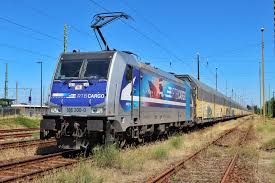Antwerp: Europe’s Premier Port Hub Navigates Economic Challenges with Innovation and Growth

A Year of Growth and Innovation
The Port of Antwerp-Bruges has demonstrated remarkable resilience in 2024, achieving a 2.3% growth in total throughput, reaching 278 million tons despite challenging geopolitical tensions and economic uncertainties.
The port’s significance to Belgium’s economy cannot be understated, as it directly and indirectly employs approximately 164,000 people, representing 6% of total employment in the Flemish Region. The facility generates added value of more than €21 billion annually, contributing 4.5% to Belgium’s GDP.
Sustainable Development and Innovation
The port continues its ambitious journey toward becoming climate-neutral by 2050. Significant progress has been made through initiatives like the NextGen District and innovation hub NextGen Demo. Notable projects include CHERISH2O for company wastewater purification and reuse, and Warmtenet Antwerpen Noord, Belgium’s first open-access heat network.
Environmental considerations are at the forefront, with shore power projects in Antwerp and Zeebrugge reducing emissions and noise pollution. The installation of one of Europe’s largest public charging stations for electric trucks has positioned the Antwerp port area as a crucial link in sustainable freight transport.
Strategic Position and Future Outlook
The port’s central location in the European road network makes it one of the fastest routes to major European destinations, including Belgium, the Netherlands, Germany, France, Switzerland, and Italy. It serves as a cost-effective choice for companies and operates as a central hub in three European rail freight corridors, maintaining frequent rail traffic to China and Korea.
Looking ahead to 2025, while challenges persist, including the demand for additional capacity and security concerns, the port remains optimistic. As CEO Jacques Vandermeiren notes, 2025 will present both challenges and opportunities, emphasizing the need for cross-border cooperation and a shared vision to maintain the port’s strategic role as an industry pioneer.
Economic Impact and Growth
Belgium’s economy has entered 2025 with positive momentum, supported by private consumption and investment. Government aid and wage indexation have helped maintain household spending and protect purchasing power. As Europe’s second-largest port and the economic engine of Flanders, Antwerp-Bruges continues to support a dynamic industrial real estate market. Strategic investments, including the merger with the Port of Zeebrugge and new tidal dock plans, are securing its future as a leading port and commerce driver.








